At Johnson O’Connor, we understand that a well-prepared audit is more than a compliance exercise – it’s a vital opportunity to strengthen your organization’s financial integrity, demonstrate transparency to stakeholders, and reinforce the trust of donors, regulators, and the public.
For non-profit organizations, the audit process provides a chance to evaluate internal processes, improve accountability, and reaffirm your commitment to sound financial stewardship. As audit season approaches, we’re sharing key recommendations to help your organization prepare thoroughly and proactively. Whether this is your first audit or a recurring engagement, the following best practices can help ensure a smooth and successful experience:
1. Ensure Financial Records and Supporting Documentation Are Complete and Accurate
A successful audit begins with well-maintained financial records. Ensure that your general ledger is up-to-date, and that all bank and investment accounts are reconciled. Supporting documentation—including grant agreements, donor letters, vendor contracts, and payroll reports—should be easily accessible and clearly organized.
Take time to compile key financial reports, such as year-end balances, budget-to-actual comparisons, and grant activity schedules. These documents should be aligned with your internal records and ready for auditors to review. Proactively preparing these materials will not only streamline the audit process but also help identify and address any potential discrepancies before fieldwork begins.
2. Document Donor-Restricted and Board-Designated Funds
Many non-profit audits involve detailed testing of restricted funds. Maintain clear documentation of donor restrictions and ensure that contributions are properly classified. If the board has designated certain net assets for a specific purpose, ensure the rationale is documented in meeting minutes and financial records.
3. Strengthen and Document Internal Controls
Auditors pay close attention to the internal control environment. Documented policies and procedures around financial approvals, segregation of duties, and cash handling are essential. If any changes in staff or responsibilities occurred during the year, be sure those are communicated and reflected in updated controls. Take time to review internal controls over high-risk areas.
4. Communicate Early with Your Audit Firm
Initiate contact with your audit team to review the proposed audit timeline, deliverables, and expectations. Inform them of any significant changes in operations, funding sources, accounting systems, or key personnel. Timely communication allows the audit to proceed with minimal delays and surprises.
5. Conduct a Pre-Audit Internal Review
Perform a final internal review of your financials and reconciliation processes prior to audit fieldwork. Identify any open items, adjust entries as needed, and ensure that all accounts are supported with documentation. This self-review can often uncover issues before the auditors do—saving time and potential complications.
Additionally, take the time to review any findings and recommendations from the prior year’s audit. Assess if there are any actionable items or improvements that can be implemented before the current year’s audit begins. Addressing prior year findings proactively not only demonstrates your commitment to continuous improvement but also helps mitigate potential issues that may arise during the new audit.
At Johnson O’Connor, we believe that thorough preparation is key to a smooth audit process. By following these best practices, your organization will not only enhance the efficiency of the audit but will also demonstrate your commitment to transparency and strong financial management. We’re here to help ensure that your audit experience is seamless, and that your organization continues to foster trust and accountability.
If you have any questions or need additional support during this audit season, please don’t hesitate to reach out to our team. We’re always here to assist you.


